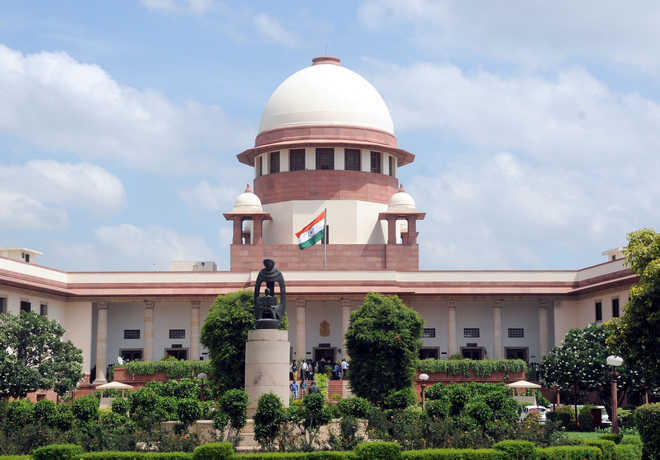New Delhi, January 2
The Supreme Court on Monday said that re-promulgation of an ordinance was a fraud on the Constitution and the satisfaction of the President or the Governor to promulgate an ordinance was not immune from judicial review.
Noting that an ordinance has the same force as law passed by the legislature, a seven-Judge Constitution Bench headed by Chief Justice TS Thakur, by a majority of 6-1, said that laying of an ordinance before Parliament or state legislature, as the case may be, is mandatory.
(Follow ; and )
The majority judgment, delivered by Justice DY Chandrachud, said that failure to place the ordinance before Parliament or state legislature is a serious constitutional fraction. Justices SA Bobde, Adarsh Kumar Goel, Uday Umesh Lalit, and L. Nageswara Rao supported this view, while CJ Thakur gave a concurring judgment with separate reasoning.
The majority judgment said that the satisfaction of the President or that of the Governor was not immune from judicial review, if the satisfaction had an oblique motive.
The court also made it clear that no legal rights would get conferred on the beneficiaries of the ordinance after its expiry or its re-promulgation.
However, Justice Madan B. Lokur said that there may be several exigencies for not placing the ordinance before Parliament or the state legislature and the same per se can’t be said to be illegal.
The case is rooted in the appointment of teachers in Bihar by taking the ordinance route. It was re-promulgated about four times. However, the successor government refused to re-promulgate the ordinance and the appointment got rejected.
The questions examined by the Bench were on the ordinance-making powers of the government and whether it was mandatory to place it before the legislature within six weeks of its very next session. Another question for adjudication was if any right was conferred on the beneficiaries of the ordinance. — IANS
Unlock Exclusive Insights with The Tribune Premium
Take your experience further with Premium access.
Thought-provoking Opinions, Expert Analysis, In-depth Insights and other Member Only Benefits
Already a Member? Sign In Now











